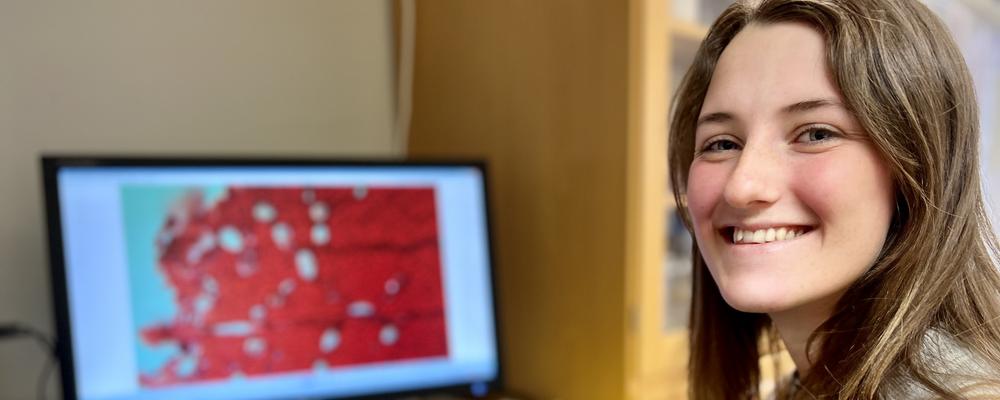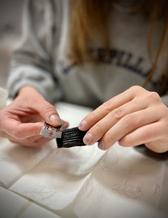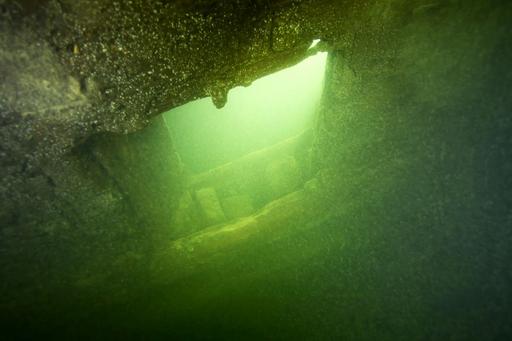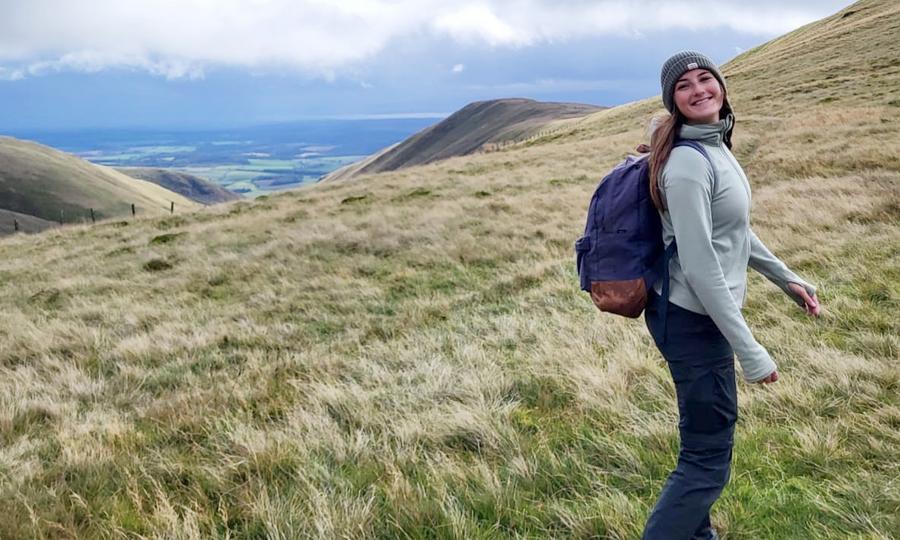
- What are you doing right now?
- How do you actually do that?
- How did you get the idea for your thesis?
- Why did you apply for the Bachelor's programme in marine sciences?
- What do you think about studying in Gothenburg?
- What is the best thing about the programme?
- What advice would you give to someone considering studying the programme?
- What do you want to do in the future?
- More information
Meet Ella – Bachelor's student in marine science
A lecture on marine cultural heritage sparked Ella Wallhagen's interest in shipwrecks and archaeological wood. In her Bachelor's thesis, she studies degraded wood from the 17th-century Swedish warship Äpplet, a sister ship to the well-known Vasa warship.
What are you doing right now?
“I’m doing my Bachelor's thesis, in which I’m studying the biological degradation in two old shipwrecks that lies in the Baltic Sea. One is the warship Vasa's sister ship Äpplet, which sank in 1659 and lies at a depth of 25 meters in Stockholm off the island Vaxholm. The other is the warship Stockholm, which sank in 1710 and lies at a depth of 6 meters outside the city of Karlskrona. In my work, I’m going to study whether the degradation of the wood differs between the ships.”

How do you actually do that?
“I make very thin incisions in the wood by using a razor blade. Then I dye the cuts and study the cell structure under a microscope. Consequently, I can determine what kind of organisms that have afflicted the wood, and see how far the biological degradation has progressed. Next week, I will study what is stuck to the surface of the wood and determine the species.”
How did you get the idea for your thesis?
“We had a lecture on one of our courses, where Professor Charlotte Björdal talked about marine cultural heritage and archaeological wood. I’ve always been interested in both marine biology and history, so when it was time to choose a thesis subject, I remembered this lecture and asked Charlotte if she had any work I could do. She turned to her network of marine archaeologists, and the Museum of Wrecks in Stockholm sent us wood from these two ships.

Why did you apply for the Bachelor's programme in marine sciences?
“I've always had an interest in the sea, and love to snorkel and explore the world beneath the surface. I wanted to apply for a programme where I could make use of my passion. Actually, it was my mother who suggested this programme to me. I read about it and thought it seemed fitting. Also, I thought that Gothenburg seemed like a nice city to live in.”
What do you think about studying in Gothenburg?
“I have lived here for three years now and really enjoy it. I like that Gothenburg is a bigger city where there is lots to do. I have loved studying near the Botanical Garden with the nature reserve Änggårdsbergen right next to it. I have also been involved in student associations, which has been a good way to meet students from other programmes, I can recommend that.”
What is the best thing about the programme?
“That's most definitely when we've been out on field trips! Both to the research stations Kristineberg and Tjärnö, and when we’ve had teaching on board the research vessel Skagerak. We’re about thirty students in our class, and thanks to all the field trips, we have become a tight group and we have a lot of fun together.”

What advice would you give to someone considering studying the programme?
“That it’s a very broad programme, and that they should have an open mind to the different subjects and parts of the programme. When I started, I was convinced that I wanted to study marine biology, but during the programme I also became interested in other subjects. I have found both marine geology and the preservation of marine cultural heritage to be very interesting.”
“I also think that you should take the chance to do an Erasmus exchange. I spent a semester at Stirling University in Scotland taking courses in aquaculture, glaciology, and marine conservation. It was great fun and enlightening!”
What do you want to do in the future?
“I was thinking of taking time off from my studies after this semester to think about what direction I should take. This summer I have applied for a volunteer job for an organisation that works with the protection of sea turtles in Greece. In the future, I can imagine myself working with either marine cultural heritage or marine conservation. I would love to return to Scotland, there are many exciting conservation projects, and they also have several interesting wrecks that could be explored.”
Interview: Karl-Johan Nylén
Translation to English: Annika Wall

